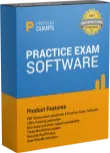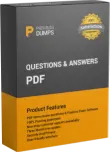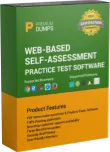
Get Splunk SPLK-2003 Exam Dumps
Splunk SOAR Certified Automation Developer Exam Dumps
Last Updated : Apr 9, 2024
Total Questions : 58
This Bundle Pack includes Following 3 Formats
Desktop Practice
Test software
Test software
Web Based
Practice Test
Practice Test
Questions &
Answers (PDF)
Answers (PDF)

SPLK-2003 Desktop Practice
Test Software
Last Updated : Apr 9, 2024
Total Questions : 58
Total Questions : 58
$59.00

SPLK-2003 Questions & Answers
(PDF)
Last Updated : Apr 9, 2024
Total Questions : 58
Total Questions : 58
$59.00

SPLK-2003 Web Based Self Assessment Practice Test
Last Updated : Apr 9, 2024
58 Total Questions
Supported Browsers
Supported Platforms
License Options
$59.00
Following are some SPLK-2003 Exam Questions for Review
What are the differences between cases and events?
When working with complex datapaths, which operator is used to access a sub-element inside another element?
Which of the following can the format block be used for?
Which of the following supported approaches enables Phantom to run on a Windows server?
Which of the following expressions will output debug information to the debug window in the Visual Playbook Editor?
Unlock All Features of Splunk SPLK-2003 Dumps Software
Just have a look at the best and updated features of our SPLK-2003 dumps which are described in detail in the following tabs. We are very confident that you will get the best deal on this platform.
Select Question
Types you want
Types you want
Set your desired
pass percentage
pass percentage
Allocate Time
(Hours: Minutes)
(Hours: Minutes)
Create Multiple
Practice test with
limited questions
Practice test with
limited questions
Customer
Support
Support
Latest Success Metrics For actual SPLK-2003 Exam
This is the best time to verify your skills and accelerate your career. Check out last week's results, more than 90% of students passed their exam with good scores. You may be the Next successful Candidate.
95%
Average Passing Scores in final Exam
91%
Exactly Same Questions from these dumps
90%
Customers Passed Splunk SPLK-2003 exam